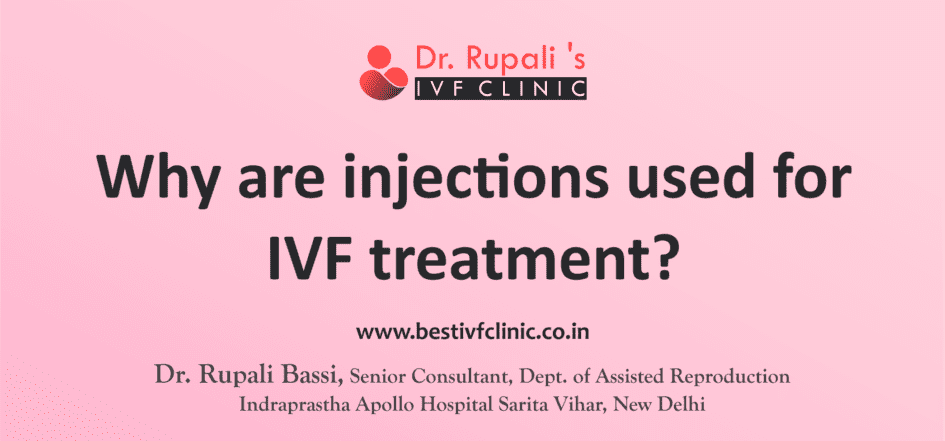IVF injections are critical for fertility treatments because they encourage the ovaries to produce
numerous eggs for fertilization. In a typical menstrual cycle, a woman develops one egg. To improve
the likelihood of successful fertilization and implantation, repeated egg harvesting is the aim of in
vitro fertilization (IVF). The ovaries generate more eggs than usual when hormones are injected into
them. These injections not only regulate the timing of ovulation but also ensure the optimal
harvesting of eggs for fertilization. In IVF, timing is everything, and injections provide you with the
control you need over the reproductive process.
What to Expect from IVF Injections?
IVF injections might be a scary idea, but knowing what to anticipate can help reduce anxiety.
Hormonal injections are usually given to stimulate the ovaries at the start of the treatment.
Depending on the type of injection, these may need to be self-administered or provided by a
medical professional.
Patients should be ready for a sequence of injections spread out over a certain amount of time, as
decided by their reproductive specialist. The injection schedule and dose are adjusted based on how
each patient responds to the treatment, which makes it an extremely personalized procedure.
Redness or swelling at the injection site are examples of transient side effects that can occur from
the injections, but these are usually minor and transient. Treatment progress is monitored regularly
with blood tests and ultrasounds to make sure everything is going as planned.

Types of IVF Injections
There are various types of IVF shots, and each has a distinct function in the reproductive treatment
procedure.
• Subcutaneous injections: These are given just under the skin’s surface. Usually, a small needle is
used to self-administer these injections. FSH and LH, two common drugs administered
subcutaneously, are follicle-stimulating hormone and luteinizing hormone.
• Intramuscular injections: This type of injection involves putting a drug directly into the muscle.
These injections are usually given by a medical practitioner and frequently require a larger needle.
Intramuscular injections are a frequent method of delivering gonadotropins, another class of
hormones essential for in vitro fertilization. This procedure is to be carried out under the guidance of Expert IVF Specialist
Benefits of Taking IVF Injections
The capacity of IVF injections to promote robust and controlled egg production is their main
advantage. This solves one of the main problems experienced by infertile couples by increasing the
likelihood of successful fertilization and implantation. Because IVF injections are individualized,
fertility professionals can customize treatment regimens to maximize patient success.
In addition, the exact control that injections offer over the reproductive process makes it possible for
medical practitioners to monitor and modify treatment procedures as necessary. To ensure a
successful IVF cycle, this degree of control is necessary.
How many injections are required for IVF?
Individual differences exist regarding the number of IVF injections required every cycle, which are
influenced by age, reproductive history, and general health. Patients should anticipate receiving
injections for 10 to 12 days on average. Frequent monitoring with ultrasounds and blood tests
guarantees that the treatment is going according to plan and allows for any required adjustments to
be made.
Common Side Effects of IVF Injections for Pregnancy
Like any medical procedure, IVF injections are generally safe and well-tolerated, but like any
medication, there is a chance of negative effects. In most cases, patients may notice bruising,
swelling, or redness where the injection was made. These are a few of the typical adverse effects of
IVF. In addition, mood changes and mild gastrointestinal discomfort are possible side effects for
certain patients. But these adverse effects usually tend to go away after the treatment is over. They are transient. For advice, individuals should let their healthcare provider know about any unexpected symptoms or concerns they may have.
Conclusion
Individual differences exist regarding the number of IVF injections required every cycle, which are
influenced by age, reproductive history, and general health. Patients should anticipate receiving
injections for 10 to 12 days on average. Frequent monitoring with ultrasounds and blood tests
guarantees that the treatment is going according to plan and allows for any required adjustments to
be made. To consult Dr. Rupali’s Best IVF clinic in New Delhi you can visit www.bestivfclinic.co.in
